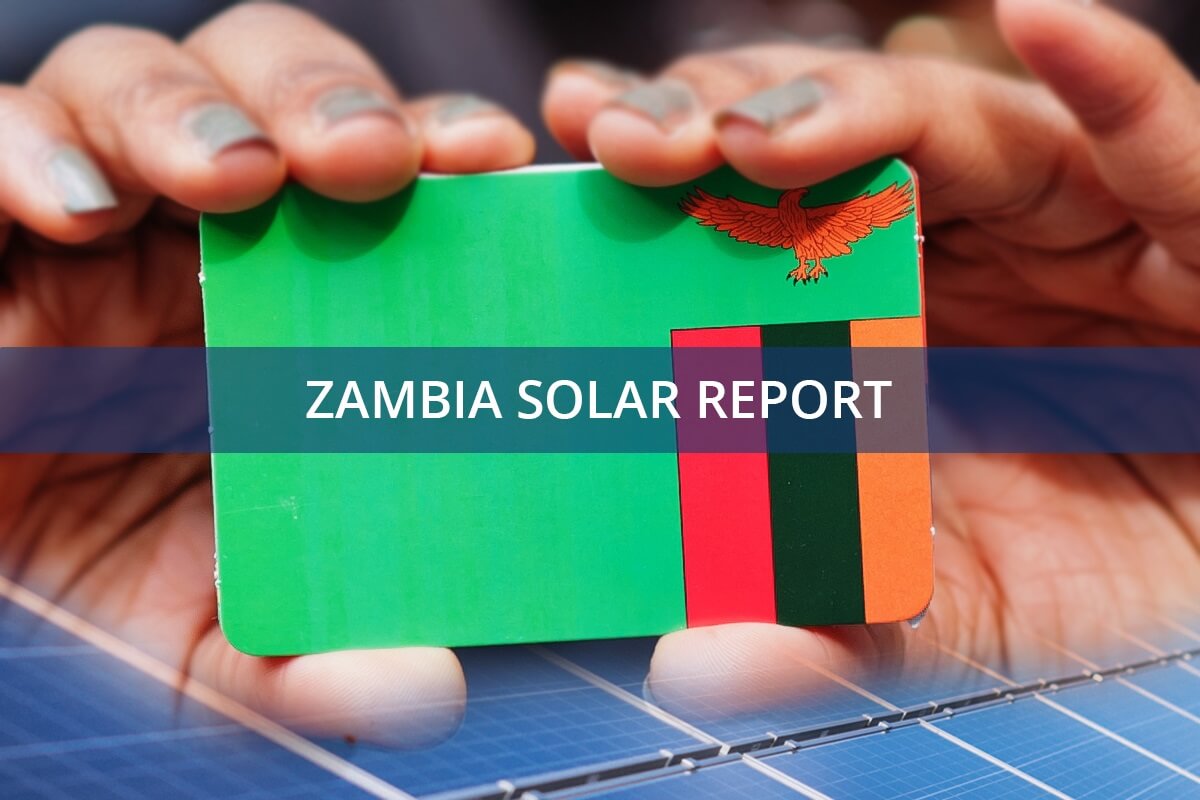The Ministry of Energy announced that by September 2025, GEI Power and YEO aim to have a 60MWp solar PV and 20MWh BESS project operational in Zambia. This endeavour — requiring an investment of $65 million — is anticipated to alleviate power shortages in the country.
First Solar Plant With Storage Capacity
GEI and YEO have established a dedicated entity named Cooma Solar Power Plant Limited to construct and manage the project in southern Zambia's Choma district. Although the Ministry's statement did not specify the power capacity of the battery energy storage system (BESS), it confirmed its energy storage capacity of 20MWh. According to information from GEI's website, the project's primary customers will be a combination of Zambia's state utility and mining firm.

Image: Collected
Described as Zambia's inaugural solar facility equipped with battery storage, the project holds an estimated value of $65 million. It is slated to commence commercial operations by September 2025, aiming to supply electricity to a minimum of 65,000 households. Ignatius Anayawa, the Managing Director of GEI Power, confirmed the completion of feasibility studies, environmental impact assessments, and grid impact studies in preparation for the project.
Leveraging Turkey’s Engineering Expertise
YEO, a Turkish energy solutions and technology company, is based in Turkey and offers its own grid-scale lithium iron phosphate (LFP) BESS product through its subsidiary REAP Battery, in addition to providing engineering, procurement, and construction (EPC) services.
Dr Francesca Chisangano Zyambo, the Permanent Secretary of the Ministry of Energy, suggested that YEO's participation could pave the way for establishing a manufacturing facility in Zambia, stating, "We also aim to leverage the engineering and battery storage expertise from Turkey to establish an assembly plant within the country."
"We also aim to leverage Turkey's expertise in engineering and battery storage innovation, intending to establish an assembly plant within the nation," Francesca noted.
Meanwhile, GEI Power is actively engaged in several projects across Zambia. In addition to the Cooma project, the company has the Kazungula Solar Power Plant (KSPP), a 50MW PV-plus-BESS project located in Choma, in the advanced stages of development. Furthermore, GEI Power has plans for two solar-plus-green-hydrogen projects in the Chinkakata and Sesheke districts.
The Sesheke district may also host the initial phase of a 400MWh rollout of BESS projects by local developer GreenCo, as reported last year by Energy-Storage.news.
Funding Solar Projects in Zambia
Zambia faces the risk of being left behind in the clean energy transition without substantial investments in energy access. Access to finance is pivotal in supporting the evolution of Off-Grid Solar (OGS) companies from relying on grant finance to operating commercially. To address this challenge, an initiative known as the REACH Sessions aims to convene public funders, including government entities, aid agencies, and foundations, along with investors, to discuss investment opportunities and challenges in Zambia's distributed renewable energy (DRE) sector.
The REACH Sessions provide a platform for public funders to gain insights directly from investors regarding their experiences in making investments in Zambia, including successes, challenges, and opportunities. Through presentations and discussions, investors can provide valuable feedback to public funders, aiding in the design of innovative de-risking mechanisms to stimulate debt and equity investments in Zambia's off-grid solar sector.
In a significant development last year, UAE-owned independent power producer (IPP) Masdar signed a memorandum of understanding (MOU) with state-owned utility Zesco to develop 2GW of solar PV projects in Zambia, as reported by PV Tech.
Zambia — represented by Zesco — is part of the Southern African Power Pool (SAPP), a collaborative effort among the southernmost African countries to establish a shared power grid. The SAPP includes Angola, Botswana, the Democratic Republic of the Congo, Eswatini, Lesotho, Mozambique, Malawi, Namibia, South Africa, Tanzania, Zambia, and Zimbabwe.

